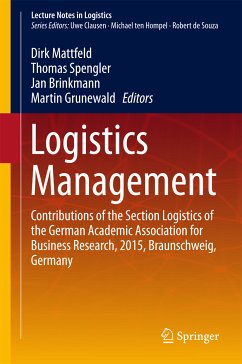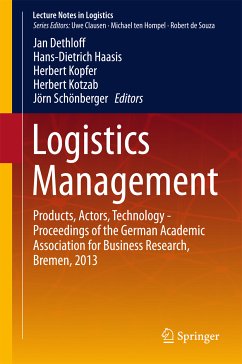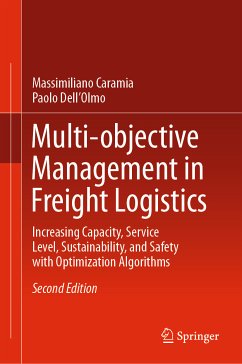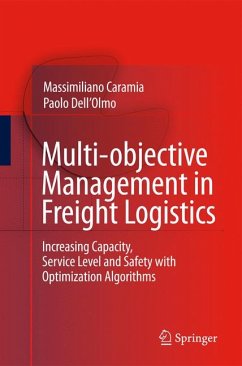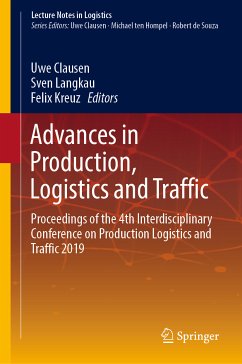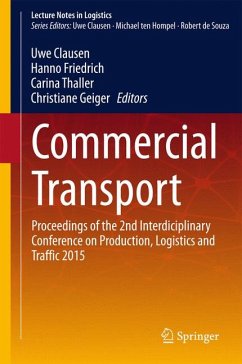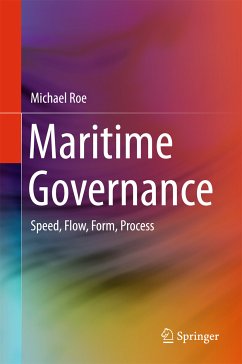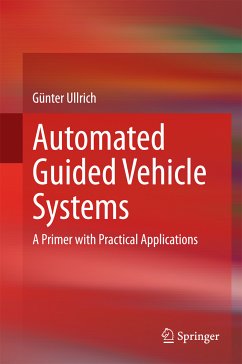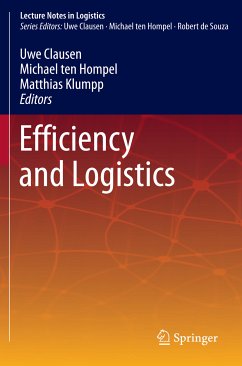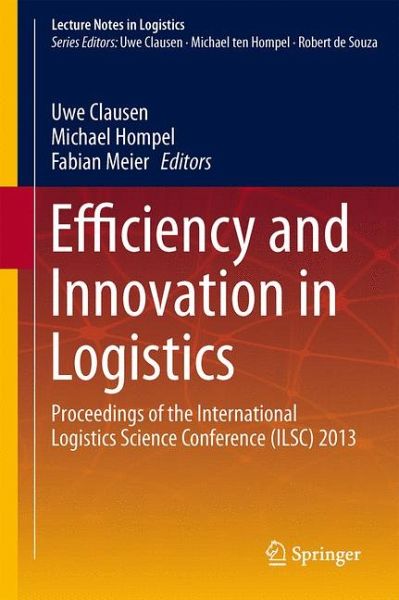
Efficiency and Innovation in Logistics (eBook, PDF)
Proceedings of the International Logistics Science Conference (ILSC) 2013
Redaktion: Clausen, Uwe; Meier, J. Fabian; Ten Hompel, Michael
Versandkostenfrei!
Sofort per Download lieferbar
112,95 €
inkl. MwSt.
Weitere Ausgaben:

PAYBACK Punkte
56 °P sammeln!
The importance of logistics in all its variations is still increasing. New technologies emerge, new planning methods and algorithms are developed, only to face a market with a growing complexity and the need of weighting monetary costs against ecological impact. Mastering these challenges requires a scientific viewpoint on logistics, but always with applications in mind. This volume presents up-to-date logistics research in all its diversity and interconnectedness. It grew out of the "International Logistics Science Conference" (ILSC) held in Dortmund in September 2013, bringing together leadi...
The importance of logistics in all its variations is still increasing. New technologies emerge, new planning methods and algorithms are developed, only to face a market with a growing complexity and the need of weighting monetary costs against ecological impact. Mastering these challenges requires a scientific viewpoint on logistics, but always with applications in mind. This volume presents up-to-date logistics research in all its diversity and interconnectedness. It grew out of the "International Logistics Science Conference" (ILSC) held in Dortmund in September 2013, bringing together leading scientists and young academics from nine different countries. The conference was jointly organized by the "Efficiency Cluster Logistics" and the "Fraunhofer Institute for Material Flow and Logistics". The Program Committee used a double blind review process to choose the 12 strongest contributions, which were then grouped in four areas: - Sustainability logistics, including electric mobility, smart information, communication technologies and corporate social responsibility management - Intralogistics, including the detection of autonomous vehicles, 3D computer vision and sensor functions for forklift trucks - Transport logistics, including distribution centre organization, delivery performance in railway systems and logistics reference modelling - Logistics facilities, including environmental impact of container ports, parcel sorting systems and model based systems engineering.
Dieser Download kann aus rechtlichen Gründen nur mit Rechnungsadresse in A, B, BG, CY, CZ, D, DK, EW, E, FIN, F, GR, HR, H, IRL, I, LT, L, LR, M, NL, PL, P, R, S, SLO, SK ausgeliefert werden.




